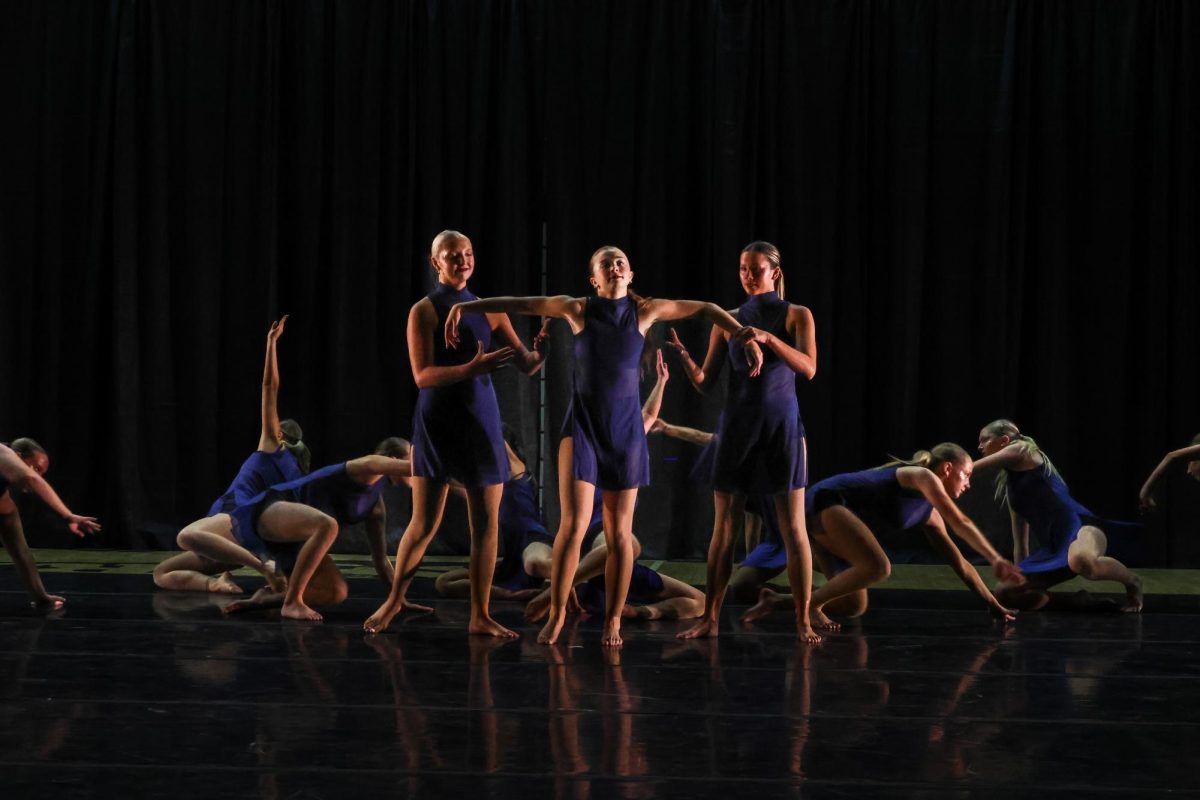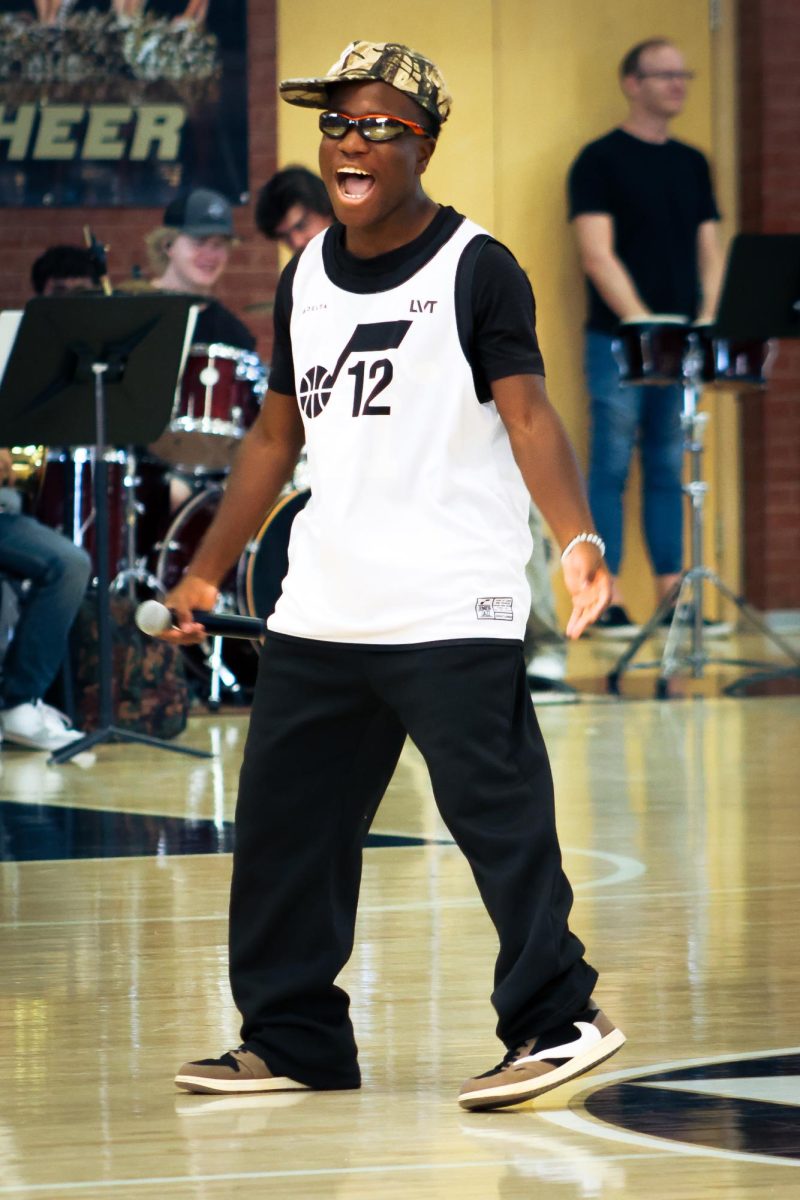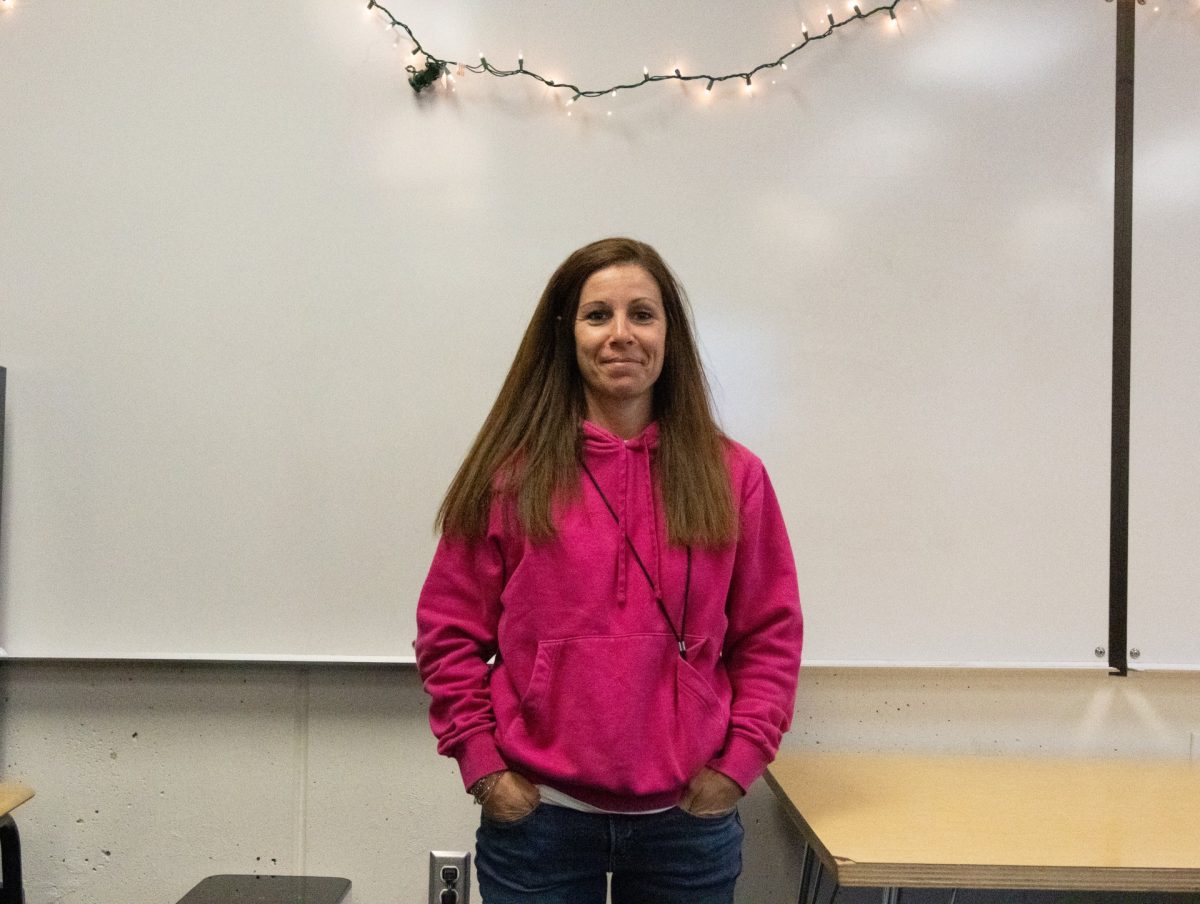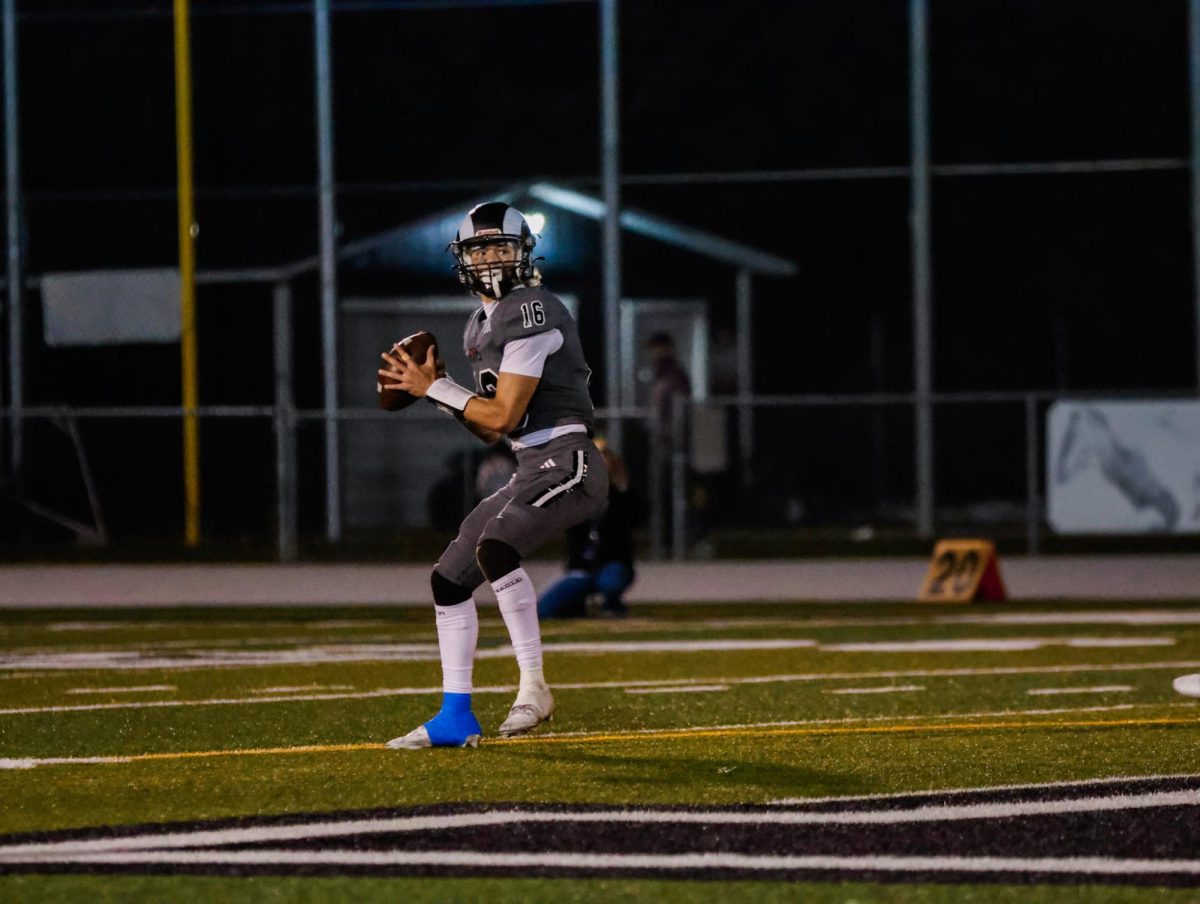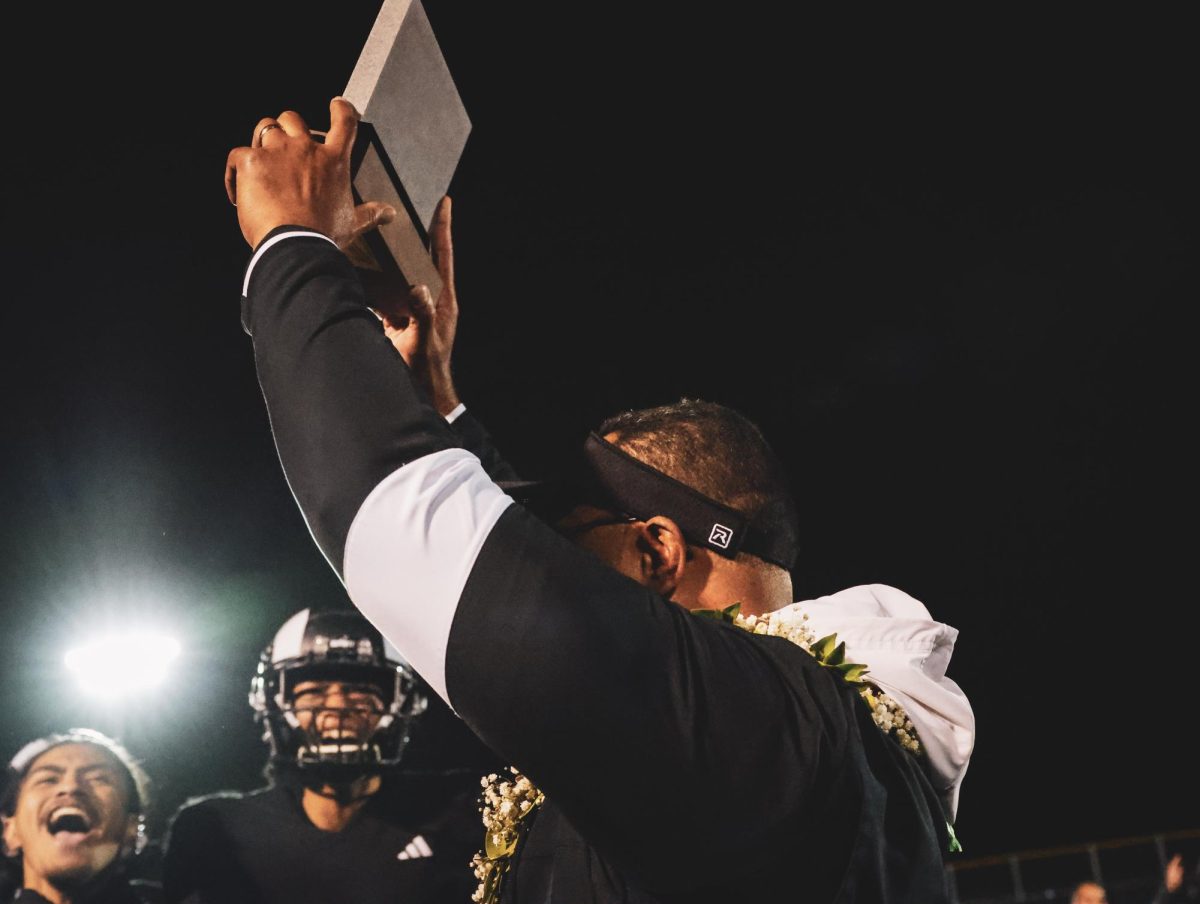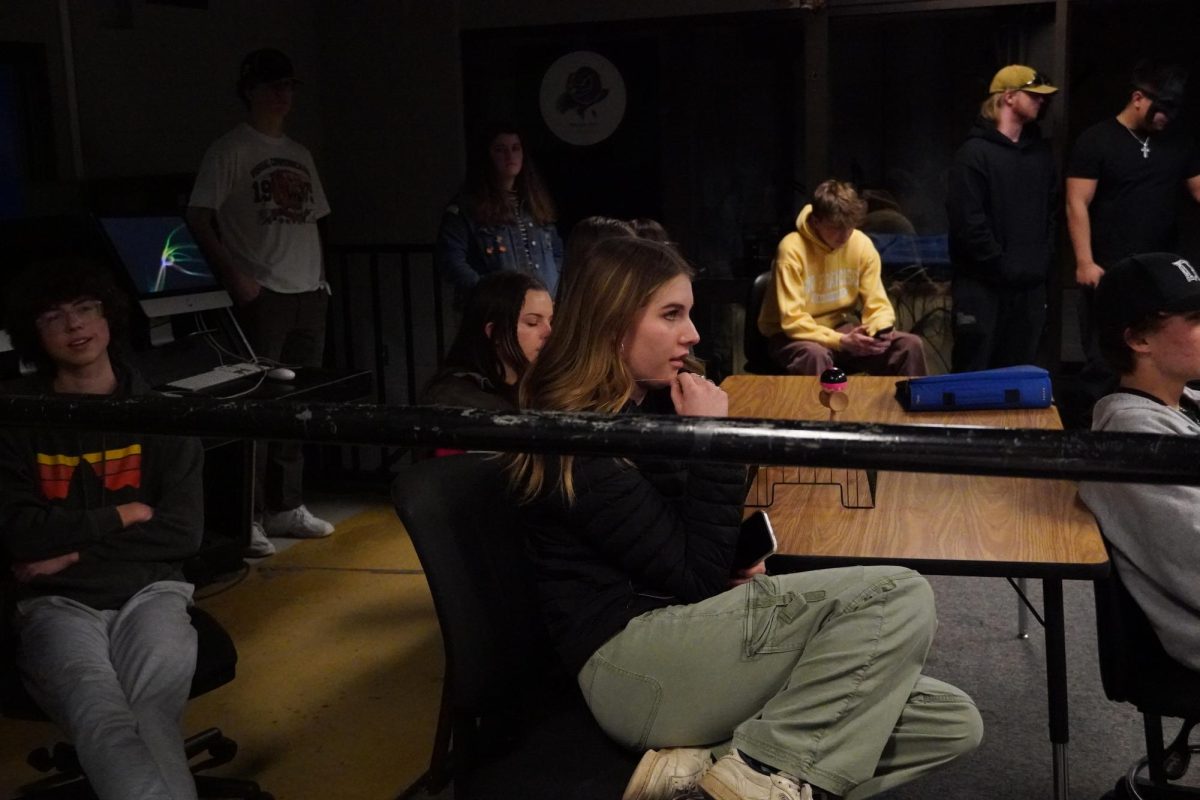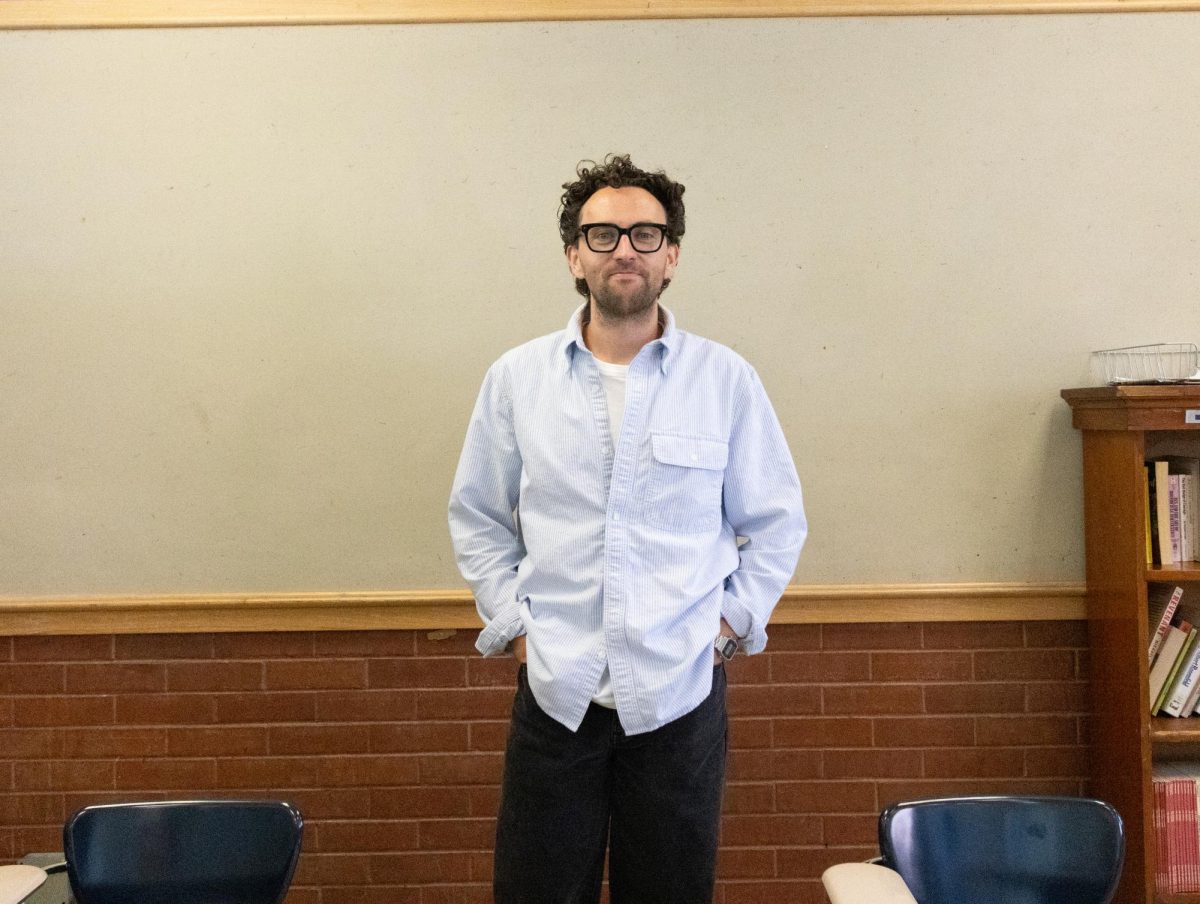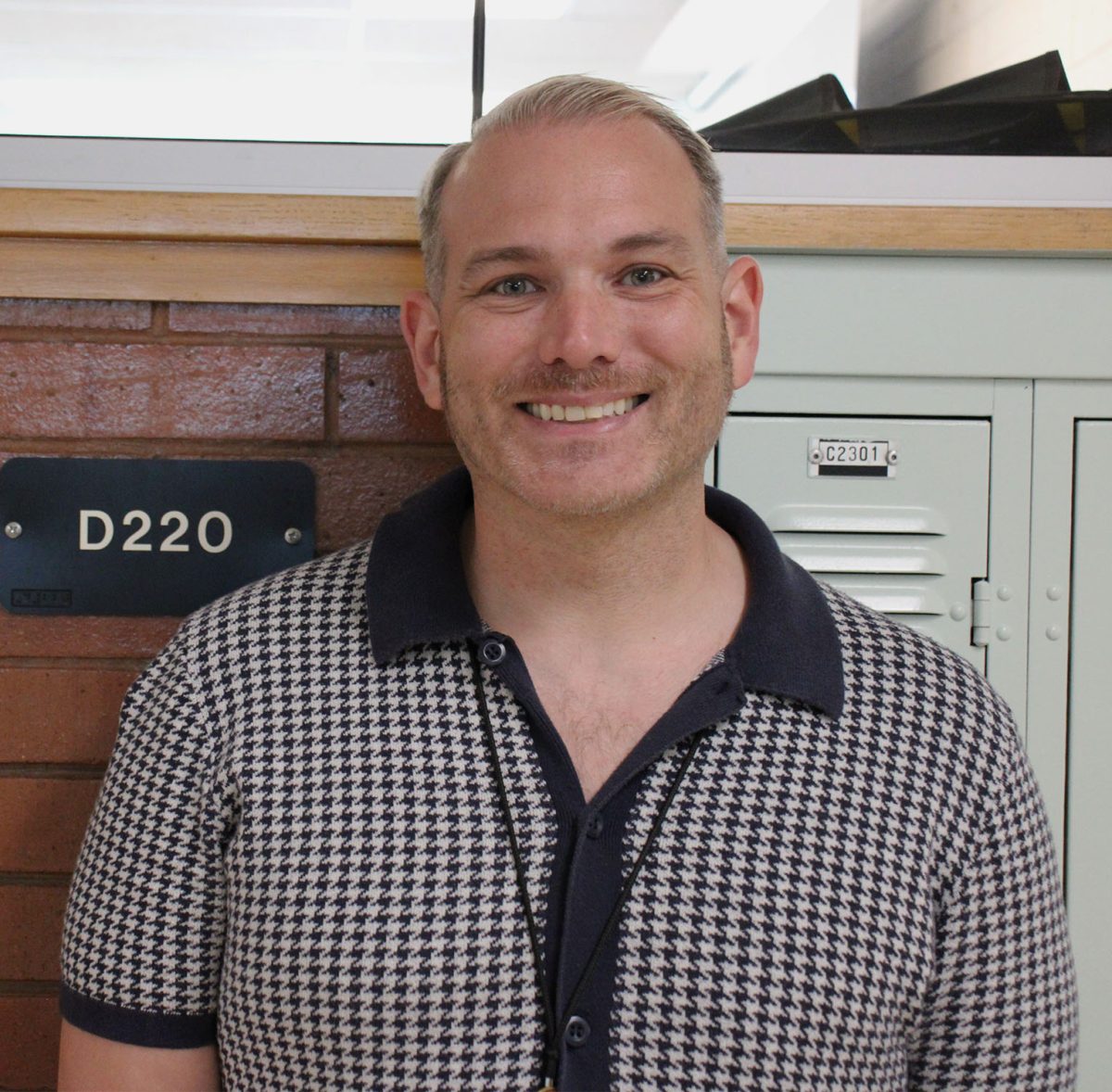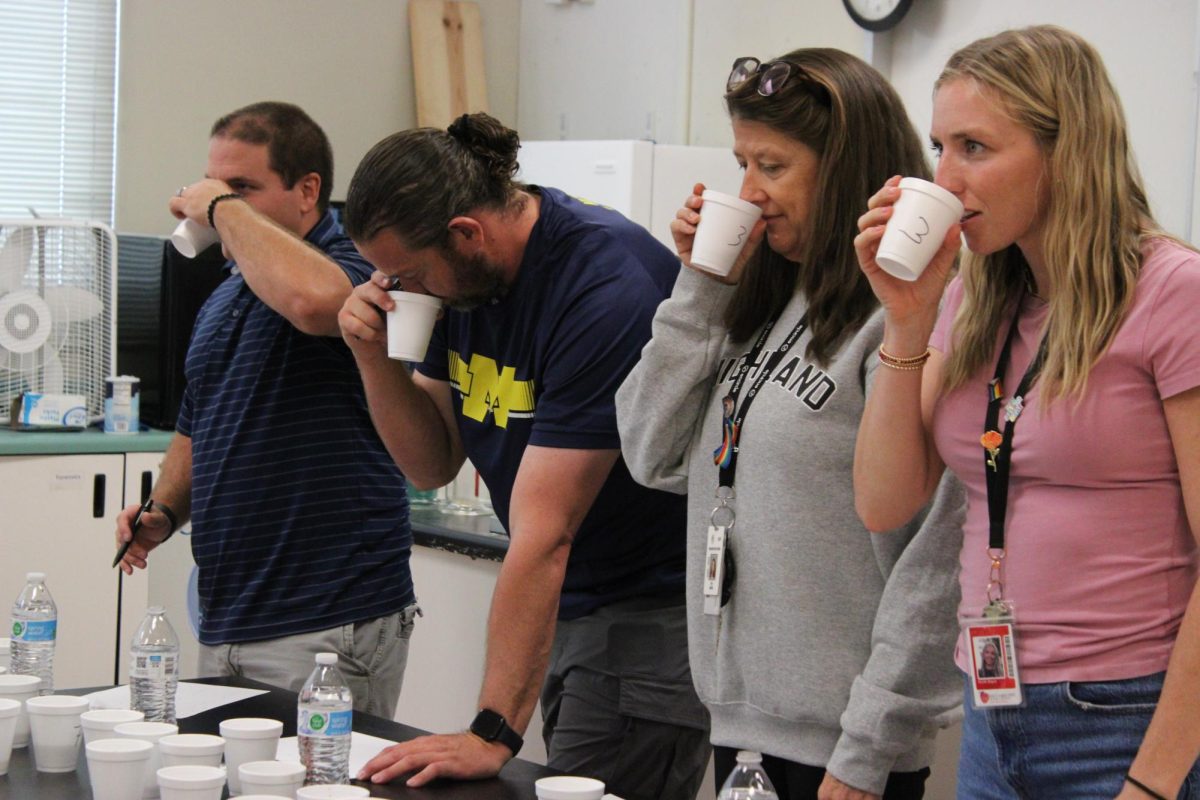The question Highland teacher Aimee Devine asks about every HTVS episode is “Did we achieve our goal?”
Little do Highland students know, there’s a lot that goes into that goal. In order to have quality content, there’s a list of things that an episode needs to have. First, it needs to be engaging, entertaining, and cohesive. Second, it needs to represent the school. Third, there needs to be effort and intention. Fourth, it must be clear and organized. And last, the camera and sound need to be up to par–planned, focused, and steady.
Devine also stressed to her class that everything always needed to be turned in on time, and if for some reason a segment couldn’t be run, there always needs to be a backup segment. If there’s no segment, there’s a hole in the episode, and if that happens, the episode can’t come out at all.
Students in HTVS take turns producing, editing, and creating episodes and segments, and being a producer is no easy feat.
“We kind of are in charge of talking to everybody, making sure their things are getting in, planning when they’re going to film, when they’re going to edit it, to ensure that everything is submitted the class period before we’re airing so the editor has a couple days to get everything put together,” Highland senior Cassie Boes said. “We help facilitate an episode.”
Episodes are usually nine to ten minutes, with the goal to keep them under ten. Filming is always going on, during school and after school hours, and episodes come out once a week on either Tuesday or Wednesdays during second period.
Getting a good episode takes communication, commitment, and time management. Time management is especially huge–things can’t fall through, or else the episode won’t happen.
Other skills that are important are knowing how to use the cameras–taking focused photos and videos or operating the cameras from the booth above the set–knowing how to use the editing website Premier, and also having the ability to ask for help.
“[It’s important to be] able to find people to help you out with it and not limiting yourself to the amount of time that you need to get everything done,” Boes said.
But the skill everyone needs who participates on HTVS is teamwork. In order for an episode to be truly great, everyone needs to collaborate.
“A big thing is working with each other, so getting someone who’s really good at editing, and someone who’s really good at filming, someone who’s really good with the sound–and when all those variables, those are the best episodes that are made,” Boes said. “Definitely working and building off of each other is huge.”
Because the HTVS team has learned this, things are going better this year than they ever have. Watching the group together is like watching a team of close friends. They laugh together, they take things seriously together, and it creates an atmosphere where everyone has a voice. And with time, they will only continue to improve.
Because of the team atmosphere that HTVS has, it makes for a fun experience for any student to join in on. In order to take the class, students need to ask Ms. Devine, and usually take either TV Broadcasting or Video Production at the same time.
“Right now, everything is actually going pretty smoothly. The last two episodes were quite an improvement,” Boes said.
